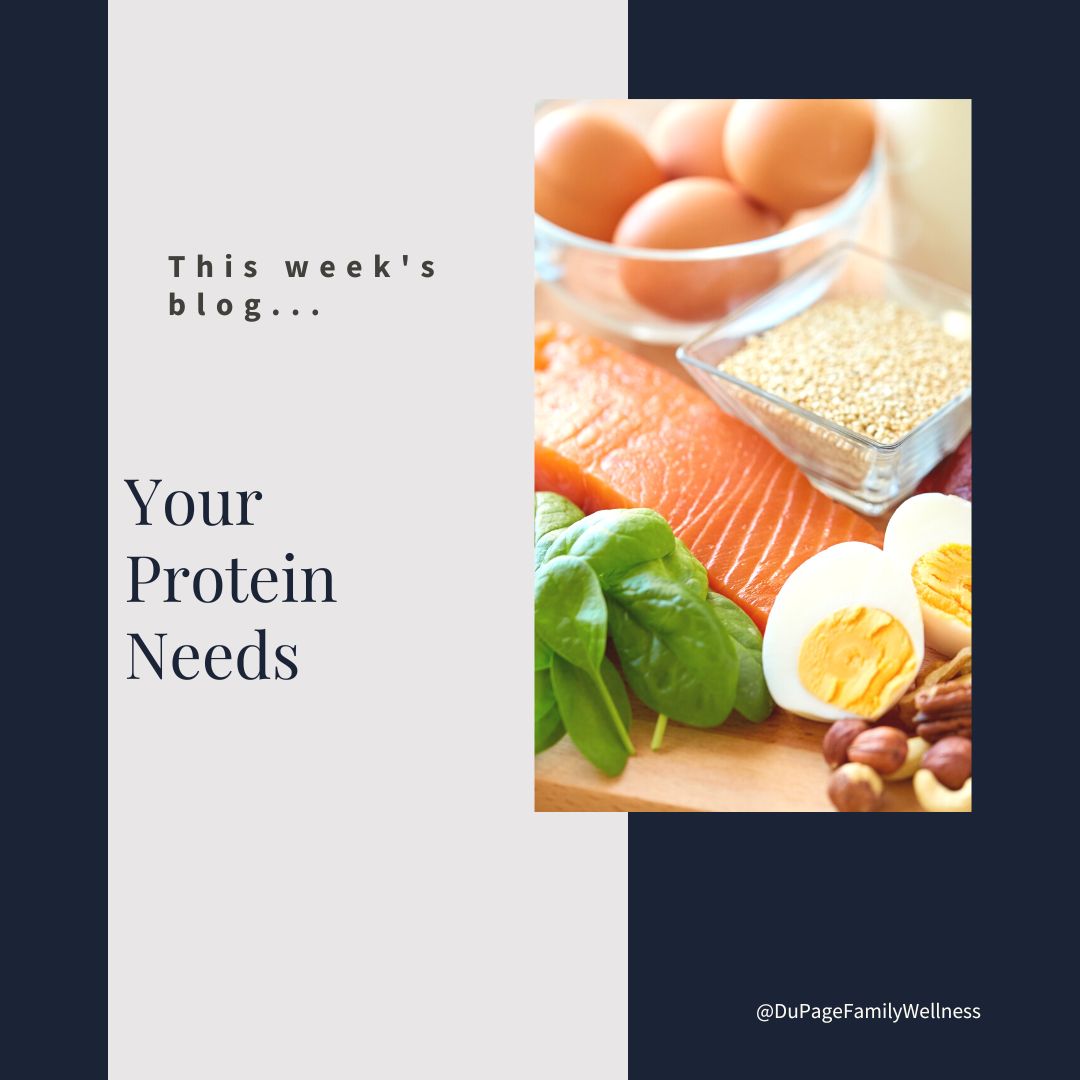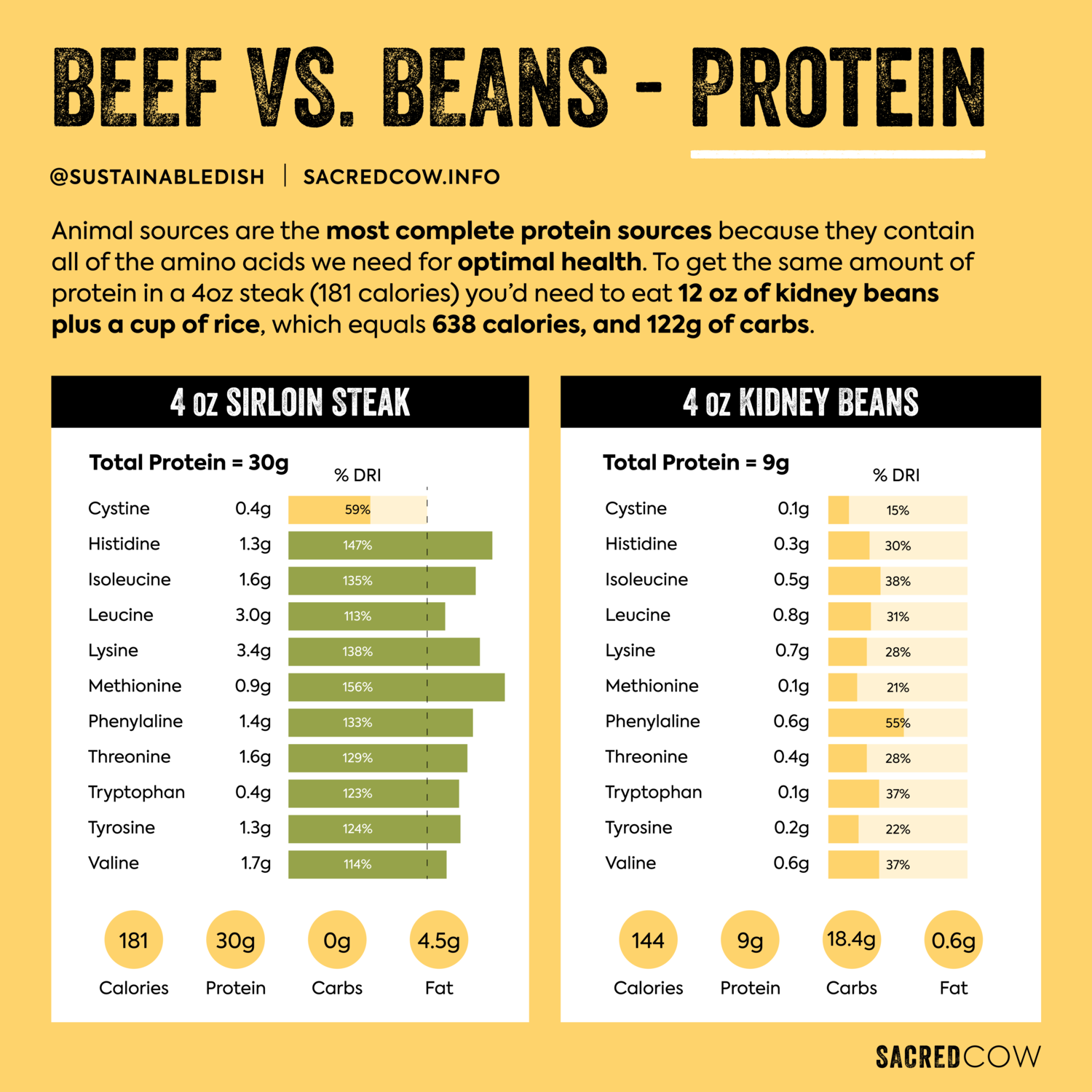 Your body may need quite a bit more protein than you are giving it. I’m not talking about adopting a keto or carnivore diet, but you need protein along with complex carbohydrates and healthy fats to thrive.
Your body may need quite a bit more protein than you are giving it. I’m not talking about adopting a keto or carnivore diet, but you need protein along with complex carbohydrates and healthy fats to thrive.
Every cell in your body contains protein, and it fulfills many different roles in the body. Since the body does not store protein, it depends on your diet to provide adequate amounts. Many women I know are not getting nearly enough protein even if they think they are.
So, how much protein do you need? Well, it depends. Let’s look at what your body needs and explore the healthiest ways to get this protein.
Why is Protein Important
Protein contains amino acids that are used to repair all the tissues in your body. You may think about your muscles needing protein (which they do), but in reality all of your systems (digestive, respiratory, circulatory, endocrine, etc.) need protein.
In a very real way, protein is one of the building blocks to a healthy and strong body. According to livestrong.com, protein actually helps “build muscles, produce new cells, regulate hormones and enzymes, heal wounds, and promote immune function”.
It is considered the most important macronutrient in building muscle, which can elevate your metabolic rate. And since protein also helps you feel full longer, it is great for those wanting to lose weight.
How Much Protein I Need: The Simple Way
Your protein needs are individual; there is no one-size-fits all measurement. Typically, you need .8g-1g per lb. of body weight, but this will of course depend on your activity level and your body mass index (BMI).
Here is an example of using this method to figure out the protein needs of someone weighing 160lbs.
.8g x 160lbs. = 128g of protein to 1g x 160 lbs. = 160g of protein
So, an 160 lb. person would need approximately 128-160 grams. That is a lot of protein!
What does this mean in terms of food?
When most of us see 130g of protein, unless you have been tracking your food, that doesn't mean a whole lot to you. So how would you go about getting 130g of protein in a day?
One of my favorite strategies is to break it up into pieces. That way, 130 grams would be 3 meals with 30 grams each plus 2 snacks with 20grams each.
What do 30 grams of protein actually look like?
Chicken- 3.5-4 oz
Ground Beef- 4 oz
Shrimp- 5 oz
Salmon- 5.5 oz
Eggs- 4-5 eggs depending on their size
Pork tenderloin- 4 oz
Milk- 3.5 cups
Yogurt- 3-4 cups depending on the type
Cheese- 3-5 oz depending on the type
Black beans- 1.5-2 cups
Soybeans- just over 1 cup
The Best Source of Protein
Meat can be a wonderful source of protein, but it is important to make sure you are getting quality meat! How the animal was raised, and what the animal did while it was alive, is extremely important.
It is not just in the animals' best interest to be grass-fed or free-range, it has a direct impact on your health as well. A study done by Mother Earth News compared eggs from free-range chickens with those produced commercially. It found that the free-range eggs had significantly more vitamin A, omega-3, vitamin E, and beta-carotene. In addition, grass-fed beef has been found to contain higher levels of vitamins, antioxidants, and anti-inflammatory omega-3 fatty acids when compared to conventional beef.
Companies spend a lot of money each year marketing their products. The terms used can be confusing for consumers. The following chart can help you decipher these terms, so you understand the quality of the meat you are buying.

Plant-Based Protein
While plants contain many necessary nutrients, they are not considered a complete protein because they lack one or more of the essential amino acids. It is possible to get the nutrients you need without eating meat, but it takes care to make sure you are getting everything you need.
For those of you that are trying to eat a vegetarian or vegan diet, check out our blog post here. As I mentioned above, getting enough protein is possible, but it does take special consideration to be sure that you are getting all of your nutrients.
Many people think beans are a great alternative to meat, but when you compare the amino acids found in 4 oz. of beans vs. 4 oz. of meat, it just doesn't stack up. I love the following graphic from Diana Rodgers, RD at Sustainable Dish. If you are interested in this topic, this article goes into more detail with some great graphics.

What might increase your need for protein?
There are a few things that might make you want to go toward the higher end of the protein recommendation.
- Higher muscle mass - If you have a lot of muscle mass, consuming more protein might be necessary to make sure you are able to repair and maintain your muscles.
- Older individuals - older individuals often need more protein to prevent muscle loss. Sarcopenia is muscle loss, and it is incredibly common as we age. Consuming more protein and continuing to move (especially with resistance training) can be great ways to be sure you don't have muscle loss or sarcopenia as you age.
If you have questions about how much protein you need, feel free to reach out to me. We can set up a time to go over your macronutrient (and micronutrient) needs. Let’s get you nourishing your body and feeling your best!
Dr. Jamie

